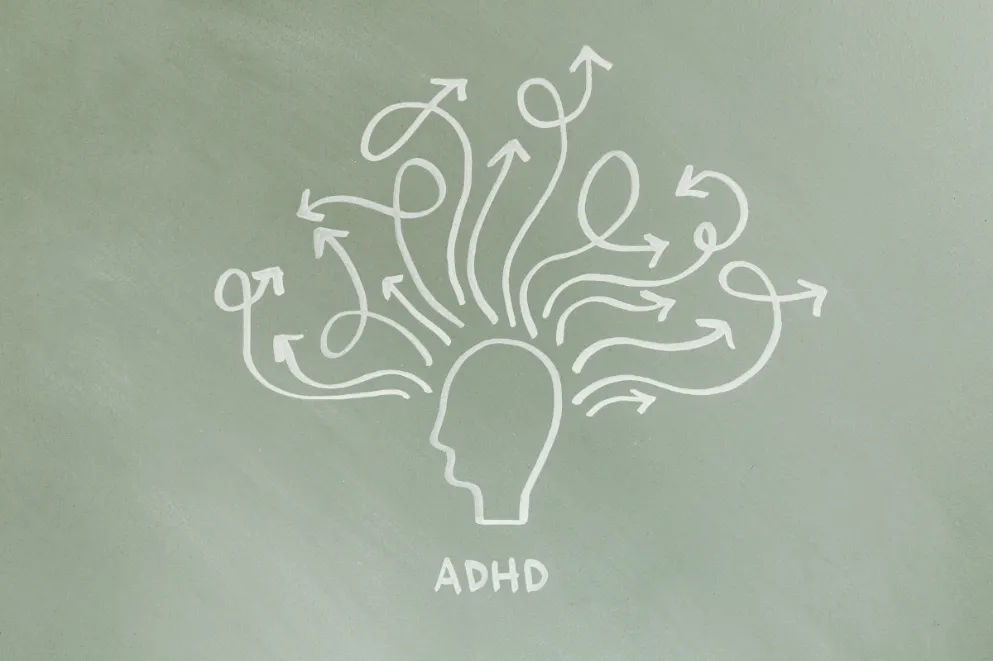Here are seven signs you might want to look out for:
1. Feeling Fidgety?: Remember those super-energetic kids? While they might have been everywhere, doing everything, adults with ADHD often feel an inner restlessness. It's less about running around and more about feelings of unease, making you want to fidget or shift in your seat. Sometimes, recognizing these signs in kids can be a lightbulb moment for adults, realizing they might have had ADHD all along.
2. Relationship Rollercoasters: If you find maintaining personal, professional, or romantic relationships a tad challenging, ADHD could be playing a role. Your loved ones or colleagues might sometimes be puzzled by behaviors like forgetfulness or procrastination, typical of ADHD. Moreover, if you often feel a sudden dip in enthusiasm in relationships, ADHD might be the reason.
3. Turning to Tobacco or Alcohol: Did you know? Individuals with ADHD are often more inclined to use substances like alcohol, drugs, or cigarettes. This might be an attempt to cope with feelings of inadequacy or low self-esteem, often accompanying ADHD.
4. Craving Adventure?: ADHD individuals often seek thrilling experiences - think high-speed drives or taking risks. Interestingly, younger folks with ADHD might be more prone to taking risks compared to adults.
5. Quick to Anger?: If your mood shifts suddenly, especially into bouts of frustration, it could be a sign of ADHD. It's important to note that such symptoms can also point to other conditions, so proper diagnosis is essential.
6. Did You Just Say That Out Loud?: Impulsivity is a hallmark of ADHD. If you often find yourself speaking without filtering your thoughts, it's something to consider. This spontaneity can sometimes lead to hiccups in personal and professional relationships.
7. Easily Distracted?: If your attention gets frequently hijacked by random noises or daydreams, ADHD might be the culprit. Tips like seeking a quiet workspace or noting down thoughts can be super handy.
Getting Diagnosed
If these signs sound familiar, the next logical step is to seek a proper diagnosis. Here's how you can go about it:
1. Consult with a Specialist: A psychiatrist, psychologist, or neurologist specializing in ADHD can offer a comprehensive evaluation. They might use structured interviews, symptom checklists, and other tools.
2. Understand Your History: In many cases, ADHD symptoms would have been present before the age of 12. Thus, understanding your childhood behaviors, perhaps through school reports or talking to family members, can be illuminating.
3. Comprehensive Evaluation: Apart from ADHD, other conditions like depression, anxiety, or sleep disorders can show similar symptoms. Hence, a holistic approach that rules out other conditions is crucial.
Treatment and Management
Once diagnosed, there are several avenues to manage and treat ADHD:
1. Medication: Stimulant and non-stimulant medications can help regulate brain chemistry, enhancing attention and reducing impulsivity. A healthcare professional will guide you on what's best. 2. Behavioral Therapy: Cognitive-behavioral therapy (CBT) can offer strategies to manage time, organize tasks, and cope with challenging situations. 3. Lifestyle Tweaks: Regular exercise, a balanced diet, and sufficient sleep can go a long way. These not only mitigate symptoms but also improve overall well-being. 4. Support Groups: Joining an ADHD support group can provide emotional backing and practical tips from others who "get it." 5. Coaching: ADHD coaches specifically help in organizing tasks, managing time, and setting achievable goals. If you're nodding along to these signs of ADHD, remember you're not alone. From diagnosis to management, there's a spectrum of support available to ensure you navigate life with confidence and clarity.
















